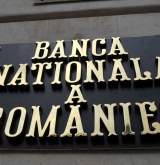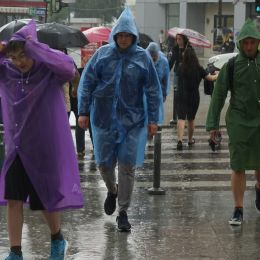The size of public aid from European Union financial institutions could reach up to 16.5% of GDP in the worst case scenario, European Commission said, cited by Reuters.
But the unrecoverable fiscal cost of supporting the financial sector could be capped to as low as 2.7 pc of GDP, EU executive body said in an annual report on public finances.
In 49 financial crises that took place after 1970 across the world, the net fiscal costs of rescuing the banking systems averaged 13% of GDP, Commission said. But the costs were 50% higher in some emerging economies.
The report comes as the European Union is suffering the most severe economic crisis since the World War II, a crisis that stemmed from US’ subprime mortgage market.
The 16 nations in the euro area have so far approved financial aid programs equivalent to 36.5 pc of GDP, of which 11.1% of GDP has been used, EU commission said.
The approved financial supports represent capital injections, guarantees on bank liabilities, toxic asset relief and liquidity and bank funding support.
A part of the approved support may not be used, but a part of them may be recouped. However, the past experience shows that the recovery rate is as low as 10% of the money initially spent, according to European Commission.
In European Union, the public support accounts for 43.6pc of GDP, with only 12.8% of them used.
The past crises across the world shows that the costs to the taxpayers of rescuing the banking system could be reduced if action was swift, comprehensive and backed by political scene.
NBR’s deputy governor, ready for a severe decline
The economic contraction projection of 4% remains feasible, according to the deputy governor of National Bank of Romania, Cristian Popa, who doesn’t exclude the likelihood of Romania being at risk of a greater GDP contrction, in view of below-expectation economic evolution.
“I still think Romania’s GDP will contract by 4%, but there are risks of underperforming, given the weaker-than-expected evolution of the economy in first quarter”, said Popa at a seminar organized by NBR .
Romanian economy shrank 6.2% in first quarter this year, from prior-year period, according to revised statistics provided by National Institute of Statistics, the decline beating analysts’ forecasts.
After statistics went public, IMF said it would probably revise the country’s economic forecasts downward, from -4.1pc. Economists of international banks dropped gloomier outlooks for GDP performance for the reminder of 2009, down to even 7.1% of GDP, in case of ING Bank.
In mid April, Cristian Popa said Romania’s economy could contract by a mere 1.5% this year, the sole reason for a more pessimistic view being the sharp adjustment of CA deficit.
Citeste si:
Calculator Salariu: Află câți bani primești în mână în funcție de salariul brut »
Te-ar putea interesa și:


















































































![HR [PLAY] Tech Workout - 11...](https://www.wall-street.ro/image_thumbs/thumbs/973/973fe0a3888d417feff63de42e814180-260x260-00-65.jpg?v=1714009191)









